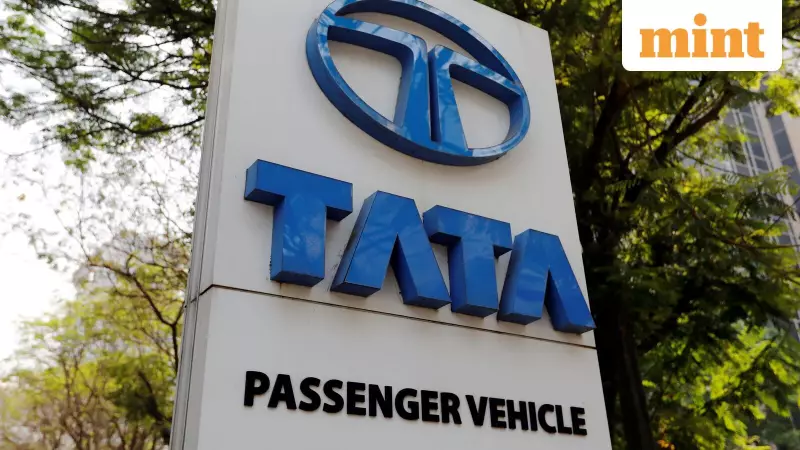
Tata Motors Passenger Vehicle Limited (TMPVL) has reported significant financial setbacks in the September quarter, slipping into losses primarily due to mounting challenges at its British subsidiary Jaguar Land Rover. The newly demerged entity reported a staggering loss of ₹6,368 crore, a sharp reversal from the profit of ₹3,056 crore recorded during the same period last year.
Quarterly Performance Highlights
The company's revenue witnessed a substantial decline of 13.5% year-on-year, dropping to ₹72,349 crore in the second quarter. This performance makes TMPVL the only one among India's top four carmakers to report a loss during this period, while competitors like Maruti Suzuki India Ltd, Mahindra and Mahindra Ltd, and Hyundai Motor India Ltd all reported profit growth.
The earnings before interest, tax, depreciation, and amortization (EBITDA) margins saw a dramatic fall of 11.2 percentage points to -0.1%, indicating severe operational challenges. The company reported these results as its first quarterly earnings following its demerger from the combined Tata Motors Ltd entity.
JLR's Multiple Challenges
Jaguar Land Rover, which contributes approximately 80% of TMPVL's revenue, faced multiple headwinds that significantly impacted its performance. The luxury car manufacturer has revised its operating profit margin guidance downward to 0-2% from the earlier projection of 5-7% for the 2025-26 fiscal year.
The company now projects ending the year with a negative cash flow of 2.2-2.5 billion euros, a significant deviation from its initial guidance of nearly no free cash flow. This marks the second consecutive quarter where JLR has adversely affected Tata Motors' overall performance.
Key Factors Behind JLR's Struggles
Several critical factors contributed to JLR's disappointing performance. A cyberattack in September disrupted production at the company's manufacturing facilities worldwide, including plants in Solihull, Halewood, and Wolverhampton in the UK, as well as facilities in Pune, India, and Nitra, Slovakia.
International trade policies also played a significant role. The imposition of tariffs by the US administration in April increased pressure on JLR, with tariffs rising from the previous 2.5% to 10%, despite some cushioning from a US-UK trade deal. North America represents JLR's largest market, making these tariff changes particularly impactful.
Additionally, China implemented a 10% tax on most luxury cars in the domestic market in July, further hurting JLR's sales in this crucial market. The combined effect of these challenges resulted in a 24% year-on-year decline in total sales for the British luxury carmaker, with quarterly sales dropping to 66,200 units.
Domestic Business Provides Some Relief
While JLR struggled internationally, TMPVL's domestic passenger vehicle business showed more positive trends. The domestic segment reported revenue growth of 15.6% to ₹13,529 crore, with sales increasing by 10% to 144,397 units.
However, profitability in the domestic business also faced pressure due to higher commodity prices that the company couldn't fully offset through price increases. Profit before tax for TMPVL fell over 32% year-on-year to ₹155 crore during the January to September period.
Management Response and Future Outlook
PB Balaji, the outgoing chief financial officer of Tata Motors, acknowledged the challenging quarter while expressing confidence in the company's recovery. "It has been a tough quarter. However, we have been strengthening our business fundamentally for many years and will continue to do so. We are sure JLR will make a comeback," Balaji stated during the post-results press briefing.
Balaji, who will take charge as JLR's chief executive from November 17, emphasized the company's focus on stabilizing production and increasing resilience throughout the extended supply chain. He noted that the domestic business continues to witness robust demand following the rollout of GST 2.0.
Shailesh Chandra, managing director and chief executive at TMPVL, highlighted strong consumer demand indicators, noting significant bookings received in September and October that couldn't be fully serviced during the festive period. The company expects December to be another strong retail month and anticipates implementing price increases in the January to March quarter to offset commodity price inflation, according to new CFO Dhiman Gupta.
The market response reflected the disappointing results, with TMPVL's shares ending 1.62% lower ahead of the earnings announcement on Friday, compared to a 0.52% fall in the Nifty Auto index.






